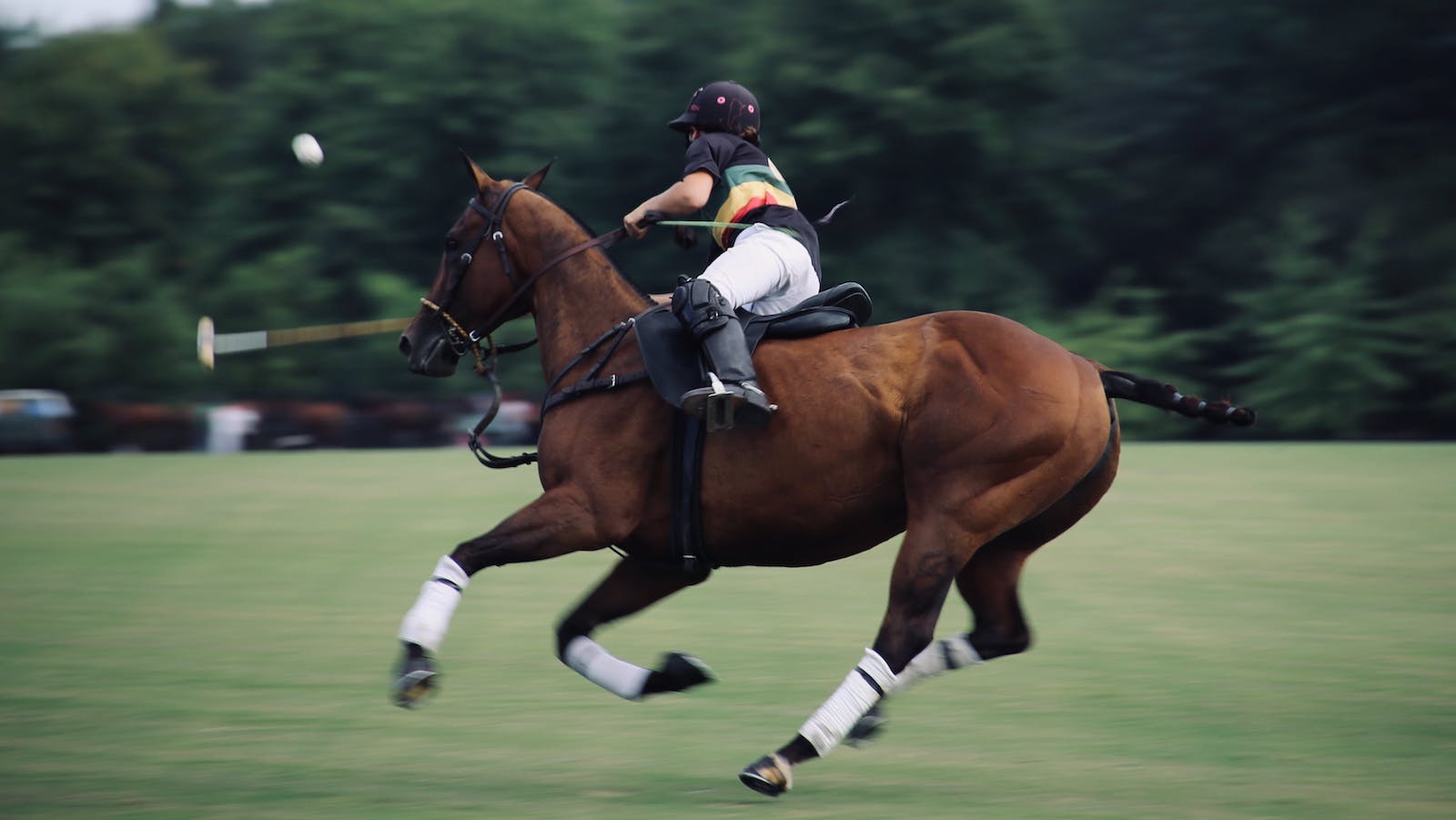Polo, the “game of kings,” is among the oldest, fastest, roughest and most dangerous team sports. Also known as hockey on horseback, the game is played with two teams of four players each. Polo combines physical skill, mental agility and quick strategic thinking. Players use a mallet to hit a small ball between the opposing team's goalposts, galloping on a horse at 30 mph.
Polo and business both require leadership, teamwork and strategy.
Leadership - No Two People Are the Same
Each player has a specific role and responsibility on the field. There are two players: the horse and the rider. However, horses aren't machines. To be a great polo player, you must be an excellent horseman or horsewoman and develop a relationship with your steed.
In my first polo season, I acquired my first pony, "JJ," an old racehorse, from a friend. Initially I "stick and ball" and fell off a lot. Then I played a couple of chukkas a game and got frustrated playing part-time, and soon more ponies followed. It kept my daughters and their friends busy exercising and grooming and was a great bonding experience.
Looking after different horses taught us that each horse has a distinct personality and unique strengths and weaknesses -- like in business, where no two people are the same and can't be led the same way. Some employees need encouragement and confidence to take risks and chances, while you might need to let others run free or even rein them in occasionally.
Employees and horses have unique motivators, skills and attributes that they bring to the table. Understanding who your people are and their skill sets will help to get the most out of the team, which is critical for strong business leadership and success.
See also: Leadership Lessons From Sports
Try, Try Again, or Get Back on Your Horse and Try Again!
Polo can be a way of life for many players and enthusiasts. Polo fosters a sense of camaraderie, respect and fair play among the players and the spectators.
It is also an extreme sport. Whether galloping 30 mph with your opponent right beside you, getting a very hard ball shot into your back or being checked by your opponent on a 900-pound horse, danger exists everywhere.
Fear can also be part of the game. Whether falling off your horse and suffering an injury, letting your teammates down or starting a new role at work, fear can shrink our confidence, make us hesitate and affect you and your team's performance.
Every polo player will fall off their horse sometime. In fact, in 2015, 58% of polo players in the U.K. reported falls. What matters is how you respond, persevere and conquer your fears. You could give up and say this sport isn't for you. Alternatively, you could embrace a growth mindset and understand that great athletes and successful people get back on their horses and focus on progression and continuous improvement rather than perfection.
After all, every expert was once a beginner.
Teamwork - Play as a Team
Only teams who play together and adhere to their positions can win in polo. For example, the number one player in polo is responsible for scoring goals. The number two player helps both in defense and offense. The number three player is often the captain and leads plays, and the number four is in charge of defending the goal. Without verbal and nonverbal communication, teams won't be able to coordinate plays effectively and ensure that everyone is playing their positions.
In business, everyone on your team has a role and position that suits their specific skills and traits. For instance, while an insurance technology company might have talented software engineers, data scientists, etc., to develop products, they need advertisers, marketers and salespeople with different perspectives and niches to sell their technology and capture market share.
Building a functional team requires leadership. Leaders must ensure that each team member, whether on the field or in the office, feels like they're a part of something meaningful and more substantial than themselves to be successful.
Play together and win together!
See also: 7 Things Sailing Taught Me on Leadership
Strategy and Time
A polo game is divided into six periods called chukkas, each lasting seven and a half minutes. Your team can lose by being two seconds too slow off the mark, letting the opposition get ahead with the ball. The split-second decisions and small room for error have taught me never to second-guess myself or delay in chasing my goals.
In business as well as polo, it is essential to keep communication open with all team members and, when you can, continue to evaluate and improve on;
- What is working
- What is not working
- What we can change
Both polo and business leaders must have good communication, coordination and motivation skills to lead their teams effectively.
My first polo game was on a farmer's field. Since then, the sport has taken me to places I likely wouldn’t have seen otherwise, including Argentina, the U.K. and all over North America.
Business has also provided quite the journey. In 2000, I founded Global IQX, an employee benefits insurtech. During the COVID pandemic, our company saw remarkable growth, and recently we were acquired by Majesco, a global leader in cloud insurance software solutions.
Whether you are playing a short or the long game, trust yourself and your team and continue to improve so you can knock that ball between the goalposts!






